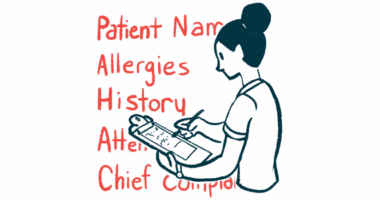Sarcoidosis Survival Mode: Strategies for Dealing with Fatigue

Sarcoidosis: No rest for the weary
Taking my nephew along on errands when he was a kid meant a race against time. I tried to finish before he uttered “home,” which was toddler speak for “leave now or be embarrassed by a temper tantrum.” That’s what daily life with chronic fatigue feels like: a short window, if any at all, to get things accomplished before your body calls it quits and threatens to throw a fit.
Sleepwalking
Fatigue plays a hand in the lives of an estimated 50 to 70 percent of us with sarcoidosis. Once we are in its grip, it can hold us hostage, whether our sarcoidosis is active or not. Sarcoidosis-related fatigue is no ordinary fatigue. It can be debilitating, refusing to budge regardless of whether we try to sleep it away or throw caffeine or prescribed medications at it.
For the past month, I’ve been shuffling along under its increasing weight like a zombie on AMC’s “The Walking Dead”. Much like the show’s zombies, my zombielike fatigue has three stages.
Bitten is stage one. I’m still able to push through and function, but like the unfortunate nursing a fresh zombie bite, the worst is yet to come.
Infected is the second stage. Coherent thought is gone and I walk around in a fog, trying and failing to complete most tasks because of the grip of tiredness.
SOL (or just “outta luck,” to keep it clean) is the last stage. You know the one: The zombie is stuck in the mud, a swamp, a well, or something else, unable to do anything but moan and flail around because it’s chained in one place by its own misfortune. In that stage, my bed is my world. I am too weak and tired to do anything more than sleep. Regardless of what stage I’m in, my fatigue never completely leaves, much like the zombie’s all-encompassing need to feed.
Snooze alarm
Sarcoidosis’ crippling fatigue can drop down on us like a ton of bricks without warning. One minute, you are pushing along your shopping cart, and the next you are dizzy, weak, and barely able to stand. The Mighty column “25 Things People With Debilitating Fatigue Wish Others Understood” quotes patients who describe their sarcoidosis fatigue as feeling like “walking through mud,” being “made of lead,” being “in a coma-like state,” and like “my body has no life in it.”
When sarcoidosis fatigue has stubbornly settled in, it leaves when it wants to. It often comes on suddenly, but sometimes, I get some warning signs that the stuck-in-bed fatigue could be headed my way, and I immediately go into survival mode.
Rest stop
Hibernation: My first line of defense when sudden, intense fatigue, weakness, and brain fog hit is rest. The trio of symptoms serves as a prelude to worse if I don’t immediately rest, so I only go out when absolutely necessary and limit any errands to under an hour.
Pace: To maximize rest, I tackle work in short intervals with frequent breaks, which not only helps me push through brain fog, but is actually more productive. I tackle everyday drudgery like housework in small chunks, devoting 15 minutes or so a day to it instead of trying to complete it all at once.
Diet: I eat frequently, every two to three hours, consume energy-boosting foods and beverages, and stay well hydrated by drinking a minimum of 64 ounces of water daily.
Stress: With my body already taxed, I make sure I don’t add to it with any additional stressors. I get plenty of rest, avoid negative situations and people, and keep windows closed and run an air purifier to combat allergies.
Going into survival mode is no guarantee that my fatigue won’t progress to a debilitating stage again. I haven’t had much success with medications in the past to alleviate fatigue, but I am holding out hope as I currently undergo another course. For now, I’m grateful that I spend more time out of my bed than in it, and plan to make the most of it, however long it lasts.
***
Note: Sarcoidosis News is strictly a news and information website about the disease. It does not provide medical advice, diagnosis, or treatment. This content is not intended to be a substitute for professional medical advice, diagnosis, or treatment. Always seek the advice of your physician or other qualified health provider with any questions you may have regarding a medical condition. Never disregard professional medical advice or delay in seeking it because of something you have read on this website. The opinions expressed in this column are not those of Sarcoidosis News or its parent company, Bionews Services, and are intended to spark discussion about issues pertaining to sarcoidosis.







cynthia hillard
Oh thank you so much for this article !!!!! I didn't know how to put my tiredness into words. You have exactly described my effort to do errands in 1 hour or less. Grocery shopping will cause me to be "unable" to do much for close to 2 days. I am blessed to have a young dog that needs the constant attention...if not for him I would be in bed. Thank you so much for making me feel "normal". Unless "your affliction" is visible many consider you lazy and useless, so why go out if you don't need. LOL if they could wear my shoes they would understand. So, I hold my head high and carry on the best I can. Phooey, on them, I say. Smiles and again thanks for making me feel good.
Athena Merritt
You're so welcome! Your comments hit the nail on the head about the challenges and criticism we face. Thank you for making my morning!
Gwendolyn Brown
I'm a Sarcodosis survivor. It's been 22yrs. I attend my doctors appointments regularly although I'm disgusted that no funding in America has been implemented. Now my Doctors says it due to the Illness being mainly an African American Illness.At times it's hard to deal with since I have now developed skin sarcodosis. But I'll continue to stay in touch because I"m sure a cure will be discovered.
Athena Merritt
Sarcoidosis is more prevalent among African Americans, which the Cleveland Clinic says “face a 4 to 17 times greater risk of the disease compared with Caucasians.” Your lengthy battle is an inspiration, as well as your optimism that a cure will be found. Stay strong. Hopefully stories like yours, mine and all of the others in this battle will help in finding one.
Malinda Wesley
I remember driving to the store I got out my car went to walk into the store my fatigue came on so strong I didn't have enough energy to shop. I turn around got back in my car and went home crawl in my bed and went to sleep till the next day.
Athena Merritt
Yes! The fatigue is horrible. I wouldn't mind it so much if sleeping actually helped get rid of it.